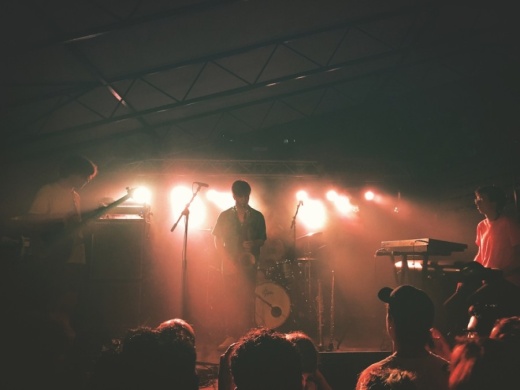Six months into the pandemic, officials say all the federal CARES Act money the city received as well as its own tax-dollar-expensed relief funds have dried up as these vulnerable economic sectors, which Mayor Steve Adler called “vital civic infrastructure,” approach collapse. City Council members have likened the moment to a crisis point and with a Sept. 17 vote sent city staff to scramble and “look in the cushions” of the city coffers for any money from any source in an attempt to preserve the industries.
Leave no stone unturned, council members told the city manager with its vote—and come back in less than two weeks. City Council will review the options during a Sept. 29 work session and on Oct. 1 will likely begin picking businesses to which they will throw their limited life rafts.
“We’re only going to be able to save a precious few; we’ve got to find where the value lies,” Adler said. “These are going to be hard choices. The meeting we have coming up is not going to be an easy one.”
Music venues have been lobbying for help since the shutdown began in March. City Council has passed resolutions to look into potentially purchasing venue properties to ease rent concerns or offer landlords a transfer of development rights to ease real estate pressure, but neither have yielded any plans. Only a fraction of those that applied to received CARES Act funding received help. In the meantime, an Austin Chamber of Commerce-commissioned survey forecasted 90% of the city’s music venues would permanently close by the fall.
Local musician Nakia Reynoso said the city’s music industry was on its last leg.
“Our signal is dying. We are running out of time,” Reynoso said, his voice breaking with emotion as he addressed City Council. “Musicians need places to play when the lights come back on. Austin’s music community is watching, and we will remember when it’s time to vote.”
Cody Cowan, executive director of the Red River Cultural District Merchants Association, said most live music venues are at one of three stages. They are either preparing to announce their permanent closure; exploring bankruptcy; or fighting to secure permits to sell food and attempt to bring in some sort of income.
Cowan, like many in the local venue industry, aired grievances over how the CARES Act funding was distributed but said, for those who received it, it helped. However, venues were up against several other industries for a piece of the relief. Cowan said the city needed to create a separate fund specific to live music venues to eliminate competition begin targeting relief. “The restaurants received [millions of dollars], and they were able to have contiguous service, which is something that venues couldn’t do,” Cowan said. Live music venues received less than $500,000 in relief from the CARES Act small-business grant fund, according to city documents. “Are we going to remove the city’s brand? Are we not going to participate in the live music and creative economy after the pandemic? You have to hold on to the things that make your city special.”
Economists have predicted that, post-pandemic, Austin will experience a K-shaped recovery, in which many economic sectors do relatively well, while many in the community experience a recession. Adler said live music venues and child care facilities are at heightened risk if they close because they often do not meet the real estate market’s “highest and best use” threshold. The mayor said losing the two industries would cause “irreparable harm.”
Throughout the week, City Council members threw ideas against the wall. Over the next two weeks, staff will decide what sticks and bring it back to City Council for approval. The city is tasked with looking into every corner, but some ideas that were mentioned included diverting some sales tax revenue—which has fared $12 million better than initial pandemic projections—and redirecting fees that typically stream into the transportation department. Council members also proposed asking consumers and tourists to contribute, suggesting grocery stores or Airbnb listings give the option to donate to a dedicated fund.
District 9 City Council Member Kathie Tovo, whose downtown district hosts many of the city’s legacy live music venues, said the next couple weeks will force Austin “really find itself.”





